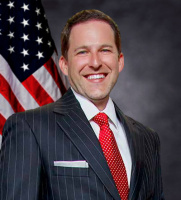The Colony DUI-DWI Lawyer, Texas
Sponsored Law Firm
-
 x
x

Click For More Info:
-
Law Office of Robert R. Jones III
2411 Emancipation Ave, Suite 202, Houston, TX 77004» view mapCriminal Defense Expert Representation for Reasonable Rates
If you need representation, call me 24/7.
800-883-8760
Darlina Crowder
Criminal, Domestic Violence & Neglect, Felony, DUI-DWI, Misdemeanor
Attorney Darlina C. Crowder provides criminal defense representation for clients in the Plano, Texas area. She has been practicing law in the U.S. Dis... (more)
Hunter A. Biederman
Criminal, DUI-DWI, Juvenile Law
The “Go to Guy for DWIs”.
Hunter Biederman, often referred to as the “Go to Guy for DWIs” is a founding partner of the Law Offices of Biederman & Burleson P.L.L.C., located... (more)
David Shuster
DUI-DWI, Bankruptcy, Construction, Personal Injury, Mass Torts
Status: In Good Standing Licensed: 22 Years
 Robert Jones San Antonio, TX
Robert Jones San Antonio, TX AboutLaw Office of Robert R. Jones III
AboutLaw Office of Robert R. Jones III Practice AreasSpecializations
Practice AreasSpecializations


